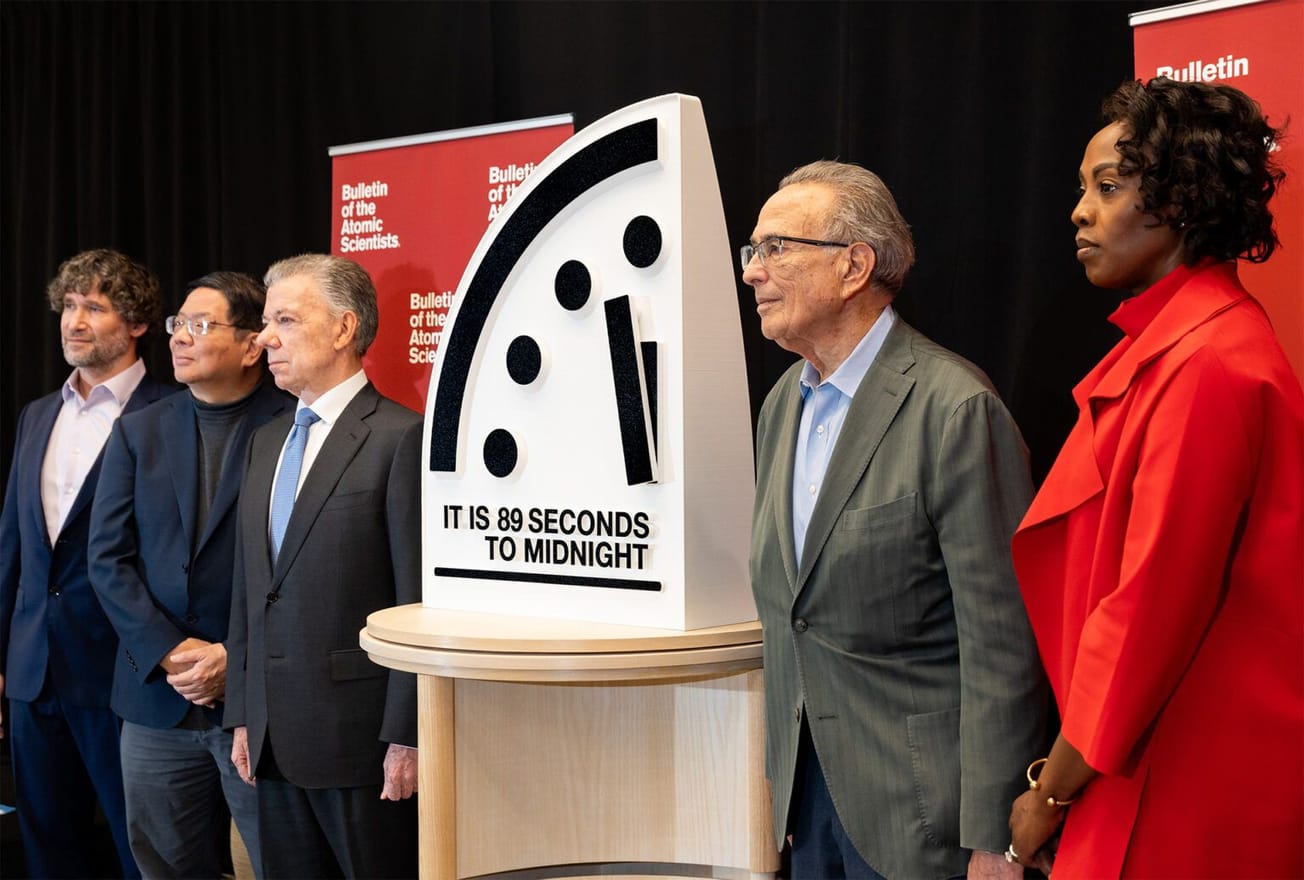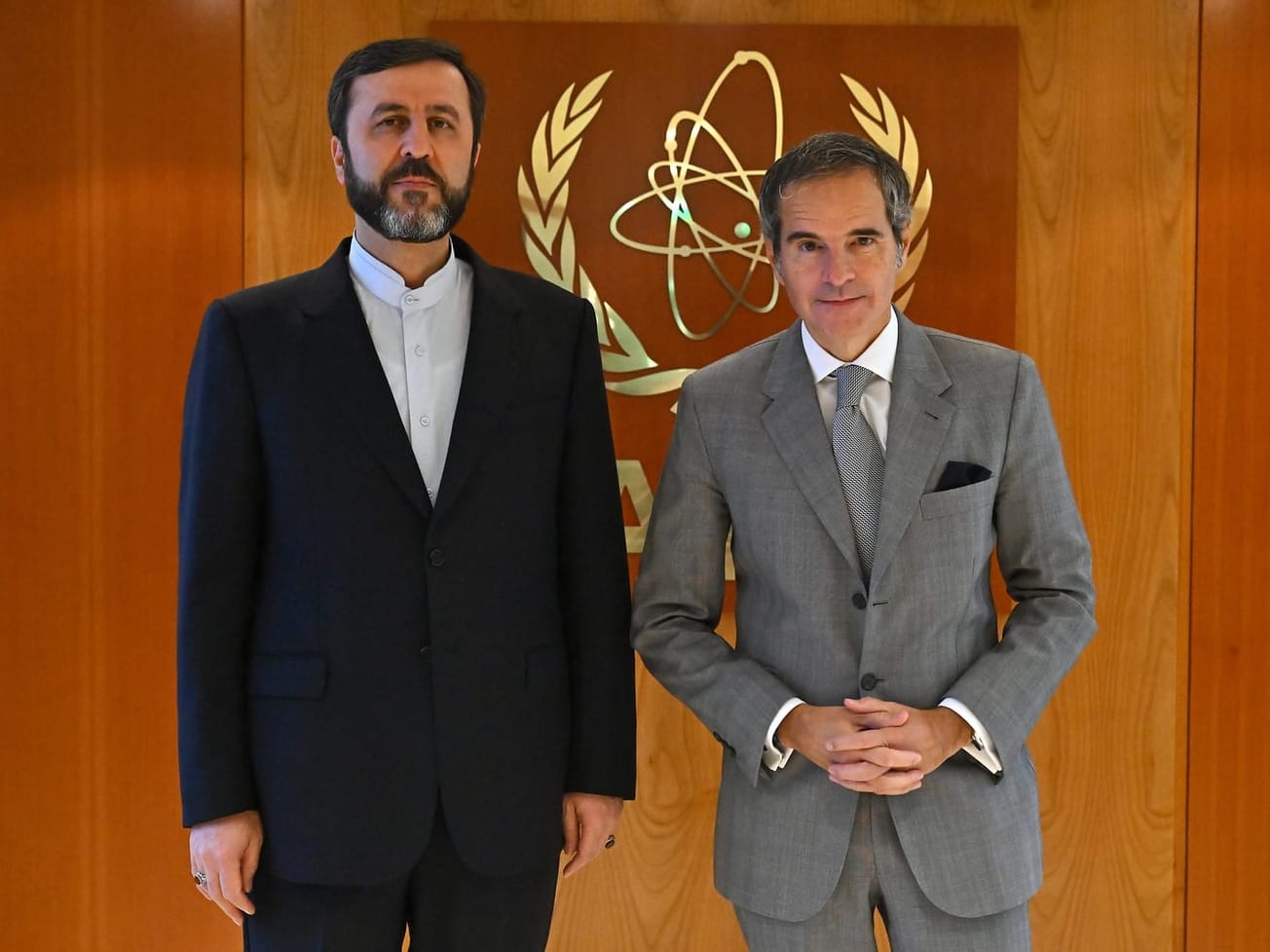WASHINGTON (AN) — U.S. President Donald Trump announced on Thursday he plans to withdraw the United States from an international treaty that permits mutual unarmed surveillance flights over 34 nations, but he believes a new deal can be made.
In a further deterioration of U.S.-Russia relations that would also fray European ties, Trump told other signatories to the Open Skies Treaty that a U.S. exit is justified by Russia's violations of its obligations under the treaty. A decade after it was first signed, the treaty took effect in 2002 with the aim of preventing misunderstandings that could lead to war. Russian officials said the withdrawal threatens European security.
"I think we have a very good relationship with Russia, but Russia didn't adhere to the treaty so until they adhere, we will pull out," Trump told reporters outside the White House. "But there's a very good chance we'll make a new agreement or do something to put that agreement back together."
U.S. Secretary of State Mike Pompeo later issued a formal statement confirming the Trump administration's plans to submit notice of its decision the next day to other parties to the treaty, making the withdrawal effective six months from Friday.
"After careful consideration, including input from allies and key partners, it has become abundantly clear that it is no longer in America’s interest to remain a party to the Treaty on Open Skies," he said in the State Department press statement. "We may, however, reconsider our withdrawal should Russia return to full compliance with the treaty."
Pompeo said the treaty was meant to promote transparency, mutual understanding and cooperation. The imagery from U.S. surveillance flights also benefits European allies. But for its part, he said, Russia "flagrantly and continuously violated the treaty in various ways for years" in the same way that it has been "a serial violator of many of its arms control obligations and commitments."
He said Russia refused access to observation flights within a 10-kilometer corridor along its border with Russian-occupied Georgian regions of Abkhazia and South Ossetia, and it also designated an Open Skies refueling airfield in Crimea, as part of its illegal annexation efforts on the peninsula.
"Russia has also illegally placed a restriction on flight distance over Kaliningrad, despite the fact that this enclave has become the location of a significant military buildup that Russian officials have suggested includes short-range nuclear-tipped missiles targeting NATO," Pompeo said. "In 2019, Russia unjustifiably denied a shared United States and Canada observation flight over a large Russian military exercise."
Pushing back, Russian Deputy Foreign Minister Alexander Grushko told state news agency Tass the U.S. treaty withdrawal will damage Europe's military security.
"Our position is absolutely clear and is invariable — the withdrawal of the U.S. from this treaty will come as yet another blow to the system of military security in Europe which is already weakened by the previous moves by the administration," he was quoted as saying, "in particular by the withdrawal from the Intermediate-Range Nuclear Forces Treaty, and prior to that by NATO’s refusal to ratify the agreement on adaptation of the Treaty on Conventional Armed Forces in Europe."
He was referring to the expiration of the INF Treaty last year — ending a key plank of Cold War-era nuclear arms control and prompting fears of a new global arms race amid rising geopolitical tensions — and the collapse of the CFE Treaty in 2015.
The Washington-based Arms Control Association called U.S. withdrawal from the Open Skies Treaty irresponsible and illegal, since it violates the 2020 National Defense Authorization Act's requirement that the Trump administration notify the U.S. Congress 120 days ahead of giving notice of an intent to withdraw.
Thomas Countryman, a former U.S. acting undersecretary of state for arms control and international security who now chairs the association's board, said the treaty is an important tool for keeping post-Cold War peace.
“A unilateral U.S. exit from Open Skies would undermine our security and that of our European allies, all of whom strongly support the treaty,” he said in a statement. “It has the effect — and perhaps this is the intention — of signaling a diminished U.S. commitment to its NATO allies.”
Last December, Trump sowed division with traditional American partners before departing from a North Atlantic Treaty Organization summit and leaving it to other leaders to put on a united front. Kingston Reif, the Arms Control Association's director for disarmament and threat reduction policy, said U.S. and allied surveillance provided valuable information on the Russian military, reducing the risk of conflict in Europe.
"The treaty has been an especially important tool in responding to Russia's aggression against Ukraine," he said. "There is strong bipartisan support in Congress for maintaining U.S. participation in Open Skies. The administration’s announcement of withdrawal is a slap in the face to Congress as it violates notification requirements written into law last year.”
Vanishing restrictions on nuclear weapons
The INF Treaty that Ronald Reagan and Mikhail Gorbachev signed three decades ago led to the destruction of almost 2,700 U.S. and Soviet nuclear and conventional ballistic missiles and their launchers. It banned all U.S. and Soviet land-based ballistic and cruise missiles with ranges between 500 and 5,500 kilometers.
Such weapons had long stirred fears of a strike caused by miscalculation or error, because at those distances the missiles could hit their targets within 10 minutes. For Europe, the removal of those weapons, accompanied by agreements on verification and inspections, brought huge relief.
But U.S. officials accused Russia of developing nuclear-capable cruise missiles to threaten or provoke NATO. Russia, in response, claimed the United States violated the pact by researching new American missile defenses that could be deployed if the Russians did not comply.
Trump and Russian President Vladimir Putin refused to set aside differences over the INF Treaty or to even hold any expert-level negotiations that might have resolved the compliance issues Trump cited in his decision to withdraw. Now, just one U.S.-Russia nuclear arms control pact remains: the New Strategic Arms Reduction Treaty, or New START, which took effect in February 2011.
But even that is now due to expire in February 2021. Last December, Putin offered to immediately renew it, without any preconditions or more discussions and well ahead of its expiration. Trump has not taken him up 0n the offer, saying China also should have to take part in the nuclear pact. It replaced the START Treaty, which was in effect from 1994 to 2009.
The CFE Treaty, signed in November 1990, was meant to ease the military standoff between the former Soviet Union and former Warsaw Pact nations. It set limits on the amount of military equipment such as aircraft, artillery and tanks that the either side could deploy in Europe, and also called for reductions and inspections.
Parts of that treaty were rendered obsolete with the collapse of the Soviet Union and dissolution of the Warsaw Pact in 1991. Russia partially suspended compliance in 2007, before fully breaking with it in 2015.
With U.S.-Russia relations already frosty, Grushko said the looming U.S. withdrawal from the Open Skies Treaty "will not only worsen the situation with strategic stability and military security in Europe, but apparently it will also harm the interests of the U.S. allies that are parties to this European agreement."
Pompeo, however, said Russia alone bears responsibility for these developments, and for the "continued erosion" of U.S.-Russian arms control architecture that has been in place for decades since the Cold War.
"We remain committed to effective arms control that advances U.S., ally and partner security, that is verifiable and enforceable, and that includes partners that comply responsibly with their obligations," he said. "But we cannot remain in arms control agreements that are violated by the other side, and that are actively being used not to support but rather to undermine international peace and security."
Four senior Democrats in Congress warned last October that the Trump administration may withdraw from the Open Skies Treaty. Senators Bob Menendez of New Jersey and Jack Reed of Rhode Island and Reps. Eliot Engel of New York and Adam Smith of Washington state wrote Pompeo and Defense Secretary Mark Esper to strongly oppose any such move.
They repeated their opposition in another letter last month, arguing the timing was particularly poor because of the COVID-19 pandemic that will take a good deal of global cooperation to surmount.
“We are deeply troubled by the Trump administration’s sustained push to withdraw from the Open Skies Treaty and we reject the administration’s arguments for pursuing withdrawal," they said in a statement. "The administration’s effort to make a major change to our national security policy in the midst of a global health crisis is not only shortsighted, but also unconscionable. This effort appears intended to limit appropriate congressional consultation on, and scrutiny of, the decision."
“This decision would have far-reaching, negative repercussions for our European allies, who rely on this treaty to keep Russia accountable for its military actions in the region," they added. "During a time when we need to push back against Russian aggression, we cannot continue to undermine our alliances — which is exactly what U.S. withdrawal from this treaty would do."








